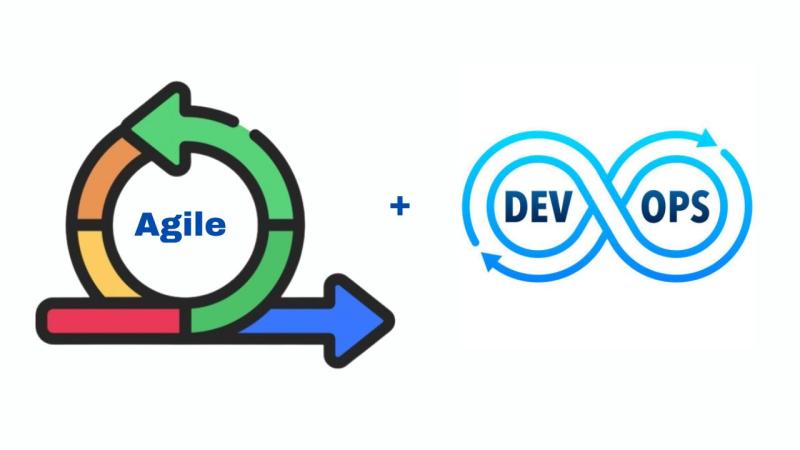The Rise of GitOps: How It's Changing DevOps Practices

In recent years, the DevOps
landscape has been rapidly evolving, with new methodologies and tools emerging
as part of the latest DevOps trends. One of the most transformative
developments is GitOps, a model that applies Git-based version control and management
to infrastructure and application deployment. This approach has gained
significant traction, changing how organizations manage infrastructure and
automate deployments. But what exactly is GitOps, and how is it revolutionizing
DevOps practices?
What is GitOps?
At its core, GitOps is an
operational framework that leverages Git repositories as the single source of
truth for infrastructure and application configurations. It extends the
principles of DevOps—automation, collaboration, and rapid iteration—by using Git
to track and manage every aspect of the system's state.
With GitOps, infrastructure
changes are managed like software updates. Teams propose changes using pull
requests and code reviews, which are then automatically applied to the
infrastructure when merged. This not only simplifies infrastructure management but
also ensures consistency and transparency across environments.
The Key Principles of GitOps
GitOps is built on four
fundamental principles:
- Declarative Configuration: Infrastructure
and application states are defined declaratively, meaning the desired
system state is outlined in the code.
- Versioned and Immutable Storage: Every
change to the system's state is stored in Git, providing an auditable,
version-controlled history of changes.
- Automated Deployment: Changes committed to
the Git repository automatically trigger updates to the system, ensuring
that production and other environments stay in sync with the repository.
- Continuous Reconciliation: The system
continuously compares the actual state of infrastructure with the desired
state and automatically corrects any deviations.
How GitOps is Changing DevOps Practices
GitOps is driving several key
shifts in how teams approach DevOps practices:
1. Improved Collaboration and Visibility
One of the biggest challenges in
DevOps has always been effective collaboration between development and
operations teams. GitOps solves this by allowing all team members to work from
a shared Git repository. This creates a single, authoritative source of truth
that everyone can access, review, and modify. Git's built-in version control
ensures that changes are transparent and easy to track.
2. Enhanced Security and Auditing
Security has become a top
priority in DevOps, especially as more organizations adopt cloud-native
technologies. GitOps inherently enhances security by providing a clear audit
trail of who made changes, when, and why. This is particularly useful for compliance
purposes, as teams can quickly review historical data to ensure that
infrastructure changes follow proper protocols.
3. Faster, More Reliable Deployments
Automation has always been a core
aspect of DevOps, but GitOps takes this to the next level. By using automated
pipelines to deploy changes from Git, teams can eliminate manual interventions,
reduce human error, and accelerate deployment cycles. The continuous
reconciliation feature ensures that any drift between the desired and actual
state of the system is automatically corrected, leading to more reliable
deployments.
4. Simplified Infrastructure Management
Traditional infrastructure
management methods can be complex, especially when dealing with multi-cloud
environments. GitOps simplifies this by treating infrastructure as code, making
it easier to manage complex systems with the same tools and processes used for
application development. This not only reduces complexity but also enhances
scalability as infrastructure evolves.
5. Consistency Across Environments
Maintaining consistency between
development, staging, and production environments is often a challenge in
DevOps. GitOps helps to standardize this by ensuring that all environments are
managed from the same Git repository. Any change made to one environment can be
easily replicated across others, reducing the risk of discrepancies.
The Role of GitOps in Current DevOps Trends
As GitOps continues to rise in
popularity, it is reshaping key DevOps trends. Organizations are increasingly
prioritizing automation, consistency, and security, all of which are core to
GitOps principles. GitOps is also driving the adoption of other emerging
technologies, such as Kubernetes and container orchestration, which rely on
declarative configurations to operate efficiently.
Moreover, as more companies adopt
hybrid and multi-cloud strategies, GitOps offers a unified approach to managing
infrastructure across disparate environments. This trend is expected to grow as
organizations seek to simplify cloud operations while maintaining control over
their infrastructure.
Conclusion
The rise of GitOps is a clear
reflection of how DevOps trends are evolving to meet the needs of modern
infrastructure management. By integrating version control, automation, and
continuous reconciliation, GitOps is changing the way teams approach infrastructure
and application deployments. As organizations continue to adopt GitOps, we can
expect it to play a vital role in shaping the future of DevOps, driving even
more innovation in automation, collaboration, and security.










Comments